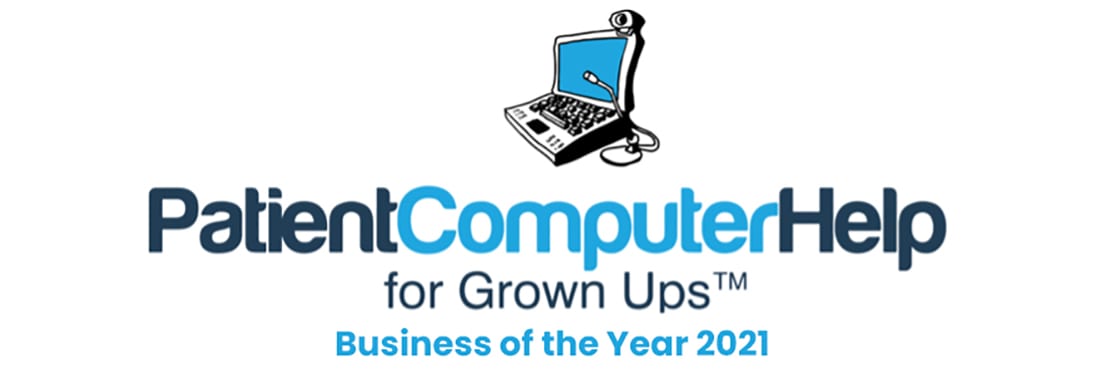Many years in the future, when today’s 30-somethings are old and gray, taking a break from virtual reality deep sea diving in their space retirement homes, they’ll tell visiting great-great-great-great grandchildren about how they are the last generation to remember life before the ubiquity of the Internet. Maybe they’ll recall humorously how naive and adorable we all were in the early 2000s, generally trusting the email in our inboxes, reusing passwords across multiple accounts, believing the videos that we saw on the internet were real. At this point in time, we’re mostly still learning this stuff. We’re still wrapping our heads around the fact that the Internet IS the real world, and our digital lives require as much protection as our physical ones.
Let’s spend a moment critically evaluating what we are doing to protect ourselves, and how we can potentially do better.
1. Keep Everything Up to Date
When possible, keep your operating software up to date with the latest release (provided you’ve waited a couple of weeks to let the guinea pigs report back with any issues and solutions). Using outdated operating systems leaves you vulnerable to malicious attacks. Along the same vein, make sure your antivirus software and browsers are kept up to date as well.
2. Encrypt Your Data
On a Mac, go to the Apple Menu -> System Preferences -> Security & Privacy -> FileVault. Turn this on. This encrypts the startup disk, keeping your files safe if a thief were to steal your device. As you will be warned when you go to turn it on, be sure to remember the password to your device and/or the recovery key it asks you to set up – otherwise your data could be lost.
On Windows, BitLocker is a program that can accomplish something similar. To enable it, go to the Control Panel, locate the BitLocker Drive Encryption system preferences, and click the link to Turn On BitLocker.
3. Store File Backups Offsite in a Secure Location
In recent years, ransomware has grown to be one of the biggest threats on the web. It’s a type of malware wherein cyber criminals encrypt a victim’s data and charge a ransom for its release. One of the best protections against this is having an offsite backup of your data. Carbonite is a good one we recommend, but do your research (or let us help you) to decide what’s best for you.
4. Create Strong, Unique Passwords
As we’ve recently discussed, the password situation is becoming dire for some. A great solution is to use a trusted password manager. Use it to keep all of your passwords, change them regularly, and enable TFA (two-factor authentication) when possible.
5. Monitor Your Online Presence
Check to see what non-friends/followers can see of your social media accounts. If your birthday, address, and mother’s name are all linked to your profile and easily found by a stranger, it’s time to consider changing your privacy settings. It’s also not a bad idea to Google yourself every so often to see what comes up. Create a Google Alert to automatically let you know as soon as your name appears online.
6. Stay Off Public WiFi
Unless absolutely necessary, we recommend never connecting to public WiFi. Public WiFi is inherently less secure than your private network because you don’t know who else is connecting to it. A better option is to use your phone as a hotspot and connect to the internet that way.
7. Watch for Phishing Attempts
Cyber criminals have gotten quite sophisticated in posing as reputable companies that you might otherwise trust. If you receive an email or a phone call from someone claiming to be from a company you have an account with, be very cautious of giving them any information. If they do need something from you (and they are who they say they are), they’ll be okay with you navigating to their webpage yourself and signing in that way.
8. Get an Annual Checkup
By law, you are allowed a free copy of your credit report from each of the three major credit reporting companies per year. Take advantage of that and ensure that the information on your credit reports is correct and up to date.
Additionally, we recommend you face the music and get a dark web scan report on your email address or domain name. An annual or twice yearly scan can alert you to any major personal data compromises before they get any worse. Give us a call and we can send you your report.
As mentioned, cyber security is still a relatively new concept for a lot of people. Unfortunately, its necessity is only growing and it won’t be going away anytime soon. With the adoption of a comprehensive cyber security approach incorporating some small, manageable habits, it is very much possible to keep yourself safe. If anything mentioned in the list above was unfamiliar to you, please reach out to your friendly Patient Computer Help team to set up a consultation.

